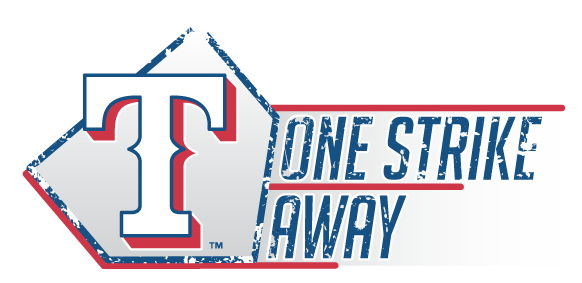Can We Talk About Elvis Andrus?
/OK, so I'll come right out and admit that this isn't necessarily a popular subject among a significant number of Rangers fans. In fact, I'd imagine that the fan base is split right down the middle. About half think that Elvis Andrus should have been traded yesterday, last week, last year. The other half still see Elvis as their favorite Ranger because it's fun to watch him play with Adrian Beltre.
It seems like at least once a day, usually more often, I see some reference to Andrus and his "terrible" or "high-priced" contract. Elvis's performance in Game 5 of the ALDS against Toronto is what is mostly used as the proof to say, "See! I told you he shouldn't have been traded!"
Andrus has even made it onto several lists that are to the effect of "worst contracts in baseball". And I've got to say, I don't get it.
Don't get me wrong, I'm not going the other way and proclaiming that Elvis has one of the best contracts in baseball. I just don't think it's necessarily a "bad" one, either. In fact, 2015 was the first year that any of the real money in the contract kicked in, paying Andrus $15 million. Prior to that, he had made $6.475 million in 2014 and $4.8 million in 2013. Those aren't bank-breaking numbers in the game of baseball.
At the same time, $15 million isn't necessarily cheap, either. Despite that, Elvis Andrus was a 2.1 WAR player in 2015. To put that in perspective, if we assume the general open-market price per win of $6.5 million, Elvis Andrus was worth approximately $13.65 million, give or take a little depending on the actual market. Is that really so far off from his $15 million per year contract -- the maximum annual value of the deal, mind you -- that he should be listed among the worst contracts in baseball?
On one hand, I get it. When a player becomes a multi-millionaire, fans want to see that player succeed at the highest level. And given his production up to the point in which he signed his contract, it appeared that the contract would be a massive bargain for Texas. However, it isn't simply fans beating this drum; it's also a lot of very smart people -- many who are likely smarter than myself.
No one will argue that Elvis has lived up to expectations, or even the same level of production he enjoyed early in his career. Much of Elvis's value has always been tied up in his defense, and that has dropped significantly. As recently as 2013, he put up a defensive runs saved (DRS) of 11. Since then, his cumulative DRS has been -14. He improved in 2015 on his 2014 season, but it's still not where it needs to be.
Defensive metrics are still very much a work in progress, but it's still not as simple as counting errors. I'm not a scout, but I do know that at the end of the 2014 season, it was reported that Elvis's weight had gone up from 185 in his rookie season to 205. I don't know what his weight is now, but you'd better believe 20 pounds can affect a player's range. Again, I have no idea how much of a factor that is now.
Texas never handed Andrus a contract to be an offensive juggernaut. A career-high of 7 home runs in 2015 is probably about the most you can expect from him. Regardless, his wRC+ needs to be higher than the 78, 78, and 77 figures he has posted through the 2013-2015 seasons.
Despite all of that, even just a small bit of improvement on his 2015 campaign, and suddenly we're talking about a player that is potentially outperforming his contract on a $/WAR basis. A few more hits. A few more plays made that the average SS doesn't make. And maybe a stolen base or two. That can make Elvis Andrus more than worth his contract.
That may not be a popular stance, but $/WAR is one method that many front offices use in evaluating potential free-agent signings. More specifically, forecasting future performance based on past performance, age, regression analysis, and the like. And while Texas may have Jurickson Profar coming back from injury, the best thing for all parties involved is probably to have Profar spend a full season at Triple-A Round Rock getting acclimated to playing baseball every day again.
After the season, perhaps the front office can explore all options and see where things end up. But at the end of the day, that's what Elvis Andrus's contract gives the organization: Options. Elvis is under team control through at least 2018, and he's able to remain in Texas through 2022 should he choose, 2023 if he activates a vesting option based on plate appearances.
If he's performing well, it makes his contract very tradeable as early as this summer to allow Profar to step into the fold -- something I believe is highly unlikely. Or, perhaps Profar can become the important trade-deadline chip. Either way, the point is that the contract Elvis Andrus has seemed like a great deal when he signed it in 2013. In reality, we're not all that far removed from Andrus being included in virtually every rumored trade scenario and all fearing that he would hit free agency and sign with the Yankees.
The contract may not look as great today as it did then, but that doesn't make it "garbage" either. And no matter what anyone says, a few bad plays in his Game 5 performance isn't indicative of his future value.

